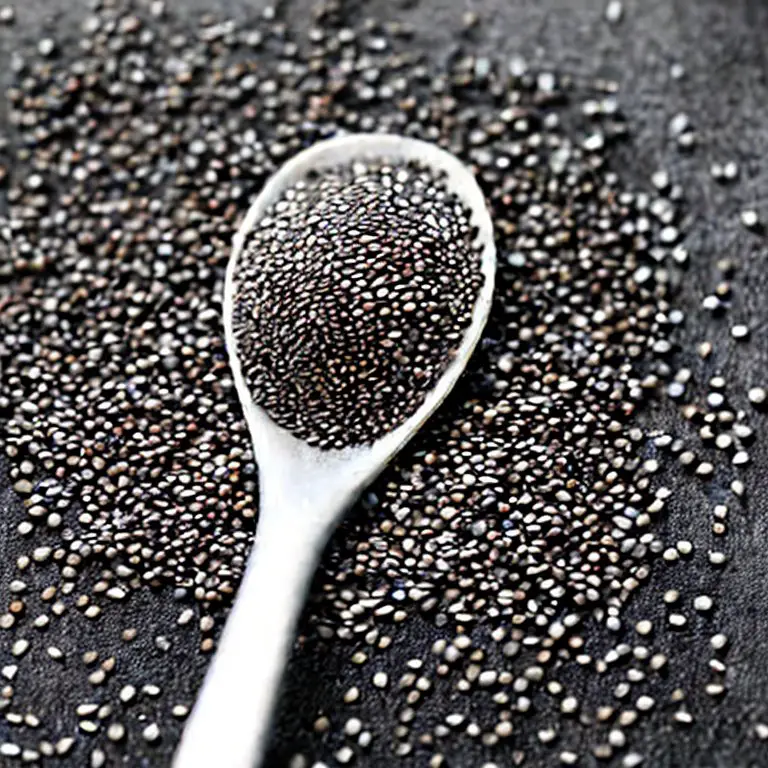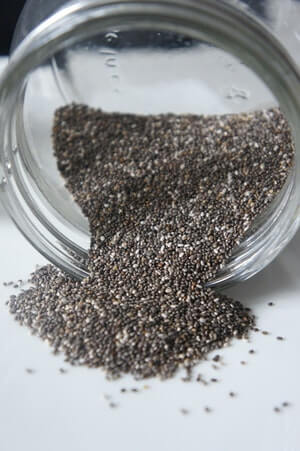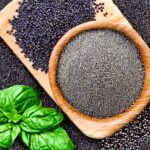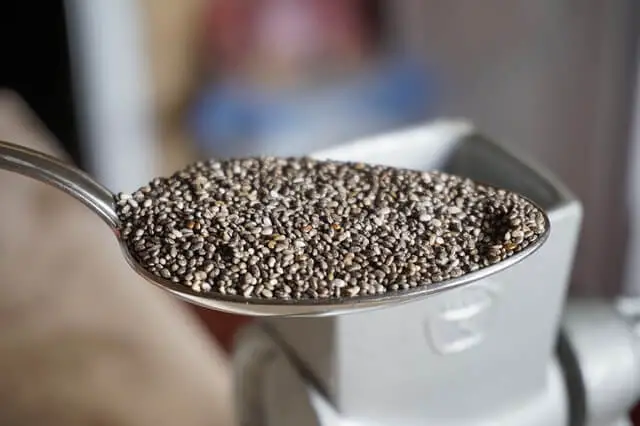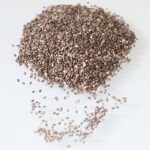Chia seeds are a type of seed that is high in nutrients and has been linked to a number of health benefits. They are a good source of fiber, protein, and omega-3 fatty acids, and they are also rich in antioxidants and other nutrients. Chia seeds have a mild, nutty flavor and can be easily added to a variety of foods and beverages.
Some people who are following a low FODMAP diet, may be wondering if chia seeds are high or low in FODMAPs, and if they might be good for someone with irritable bowel syndrome to eat. In this article, we will the FODMAP level in chia seeds.
- What is FODMAP?
- Are Chia Seeds Low FODMAP?
- Are Chia Seeds Good for IBS?
- Can Chia Seeds Be Inflammatory?
What is FODMAP?
FODMAPs are a group of short-chain carbohydrates that are poorly absorbed in the small intestine and can cause digestive symptoms in some people. FODMAP is an acronym that stands for Fermentable Oligosaccharides, Disaccharides, Monosaccharides, and Polyols. These are types of carbohydrates that are found in a variety of foods, including grains, fruits, vegetables, dairy products, and sweeteners.
FODMAPs are thought to cause digestive symptoms in some people because they are poorly absorbed in the small intestine. They are fermented by bacteria in the large intestine, which can lead to the production of gas, bloating, and other digestive symptoms. Some people are more sensitive to FODMAPs than others, and may experience symptoms when they consume high FODMAP foods.
A low FODMAP diet involves eliminating or reducing the intake of high FODMAP foods in order to alleviate digestive symptoms such as bloating, gas, abdominal pain, and diarrhea. This type of diet is often recommended for people with irritable bowel syndrome (IBS) or other digestive disorders, as it can help to manage their symptoms.
Are Chia Seeds Low FODMAP?
Some people with irritable bowel syndrome (IBS) or other digestive disorders may need to follow a low FODMAP diet to manage their symptoms. As mentioned earlier, FODMAPs are a group of short-chain carbohydrates that are poorly absorbed in the small intestine and can cause digestive symptoms in some people.
According to Monash University’s FODMAP Diet App, chia seeds are low FODMAP in servings of up to 2 tablespoons (30 grams) per serving. However, it is important to note that chia seeds are high in fiber and may cause digestive symptoms in some people, especially if they are not used to consuming a lot of fiber. It is generally recommended to start with small servings of chia seeds and gradually increase the amount to allow the digestive system to adjust.
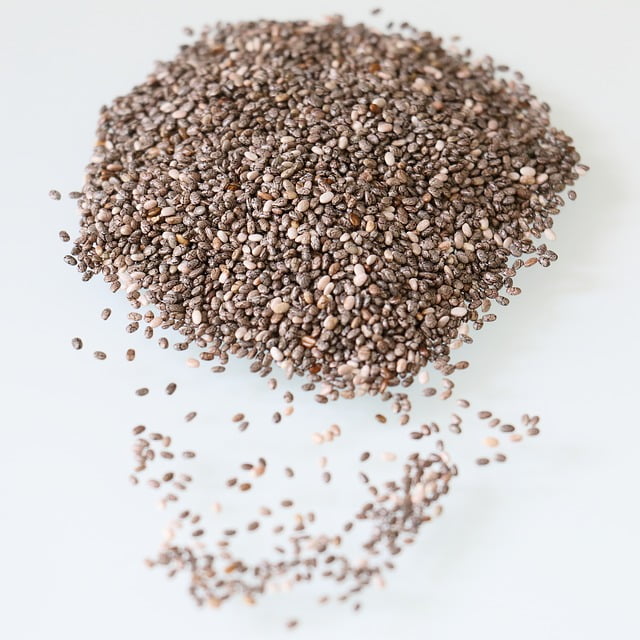
If you are following a low FODMAP diet and want to include chia seeds in your diet, it is important to speak with a registered dietitian or a healthcare provider to ensure that you are meeting your nutritional needs and to help determine the appropriate serving size for you.
Are Chia Seeds Good for IBS?
Some people with irritable bowel syndrome (IBS) or other digestive disorders may find that including chia seeds in their diet helps to alleviate their symptoms. Chia seeds are high in fiber, with about 10 grams of fiber per ounce (28 grams). This makes them a good option for those looking to increase their fiber intake, as fiber is important for maintaining regular bowel movements and may help to reduce the risk of constipation, diverticulitis, and certain types of cancer.
However, it is important to note that chia seeds may cause digestive symptoms in some people, especially if they are not used to consuming a lot of fiber. It is generally recommended to start with small servings of chia seeds and gradually increase the amount to allow the digestive system to adjust.
Additionally, chia seeds are considered low FODMAP in servings of up to 2 tablespoons (30 grams) per serving, according to Monash University’s FODMAP Diet App. This means that they can be safely included in a low FODMAP diet in this serving size. A low FODMAP diet is often recommended for people with IBS or other digestive disorders as it can help to manage their symptoms.
(Learn more at Are Chia Seeds Good for IBS?)
Can Chia Seeds Be Inflammatory?
There is limited research on the potential inflammatory effects of chia seeds. Some studies have suggested that chia seeds may have anti-inflammatory properties, while others have found no significant effects on inflammation.
One study published in the Journal of Agricultural and Food Chemistry in 2010 found that chia seeds contain a high amount of alpha-linolenic acid (ALA), an omega-3 fatty acid that has been linked to anti-inflammatory effects. The study found that chia seeds had a higher concentration of ALA than flaxseeds, which are also a good source of omega-3 fatty acids.
However, another study published in the Journal of Lipid Research in 2014 found that chia seeds had no significant effect on inflammation in overweight and obese individuals. The study involved a group of 44 individuals who consumed either a chia seed-enriched muffin or a control muffin for 12 weeks. The study found that there were no significant differences in markers of inflammation between the two groups.
It is important to note that these studies were relatively small and did not examine the long-term effects of chia seeds on inflammation. More research is needed to determine the potential inflammatory effects of chia seeds.
In general, a healthy diet that is rich in fruits, vegetables, whole grains, and other plant-based foods is likely to have anti-inflammatory effects. It is important to speak with a healthcare provider or a registered dietitian before making any changes to your diet, and to work with them to determine the appropriate dietary changes for your individual needs.
Lance has been passionate about the plant-based diet and we have been following a whole food plant-based diet for over 5 years. We focus on health, natural healing, weight management, animal rights, and the health of the planet and environment by focusing on whole plant-based foods and sustainable practices.
Learn more at the About Me page and follow on social media at the links below.

